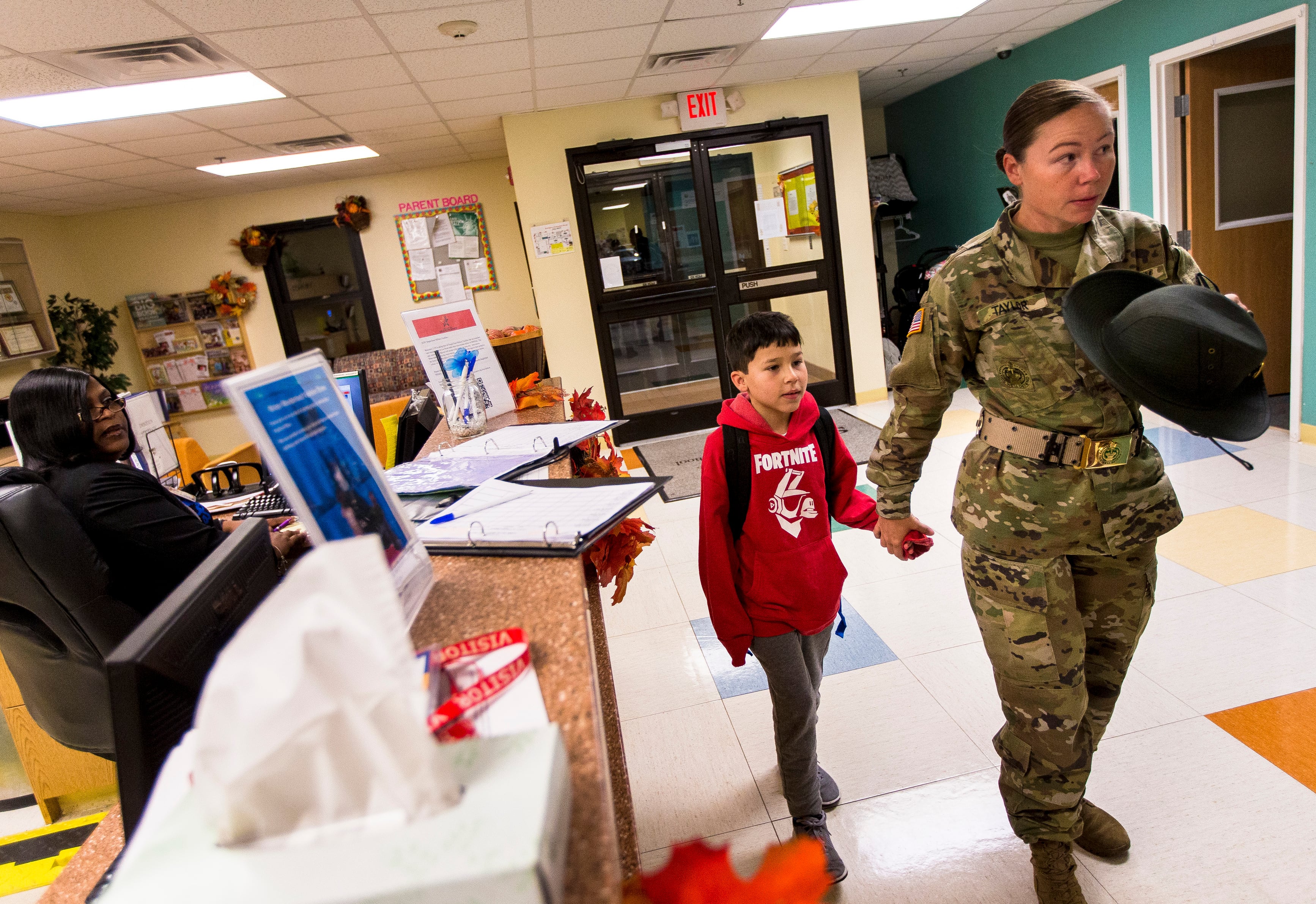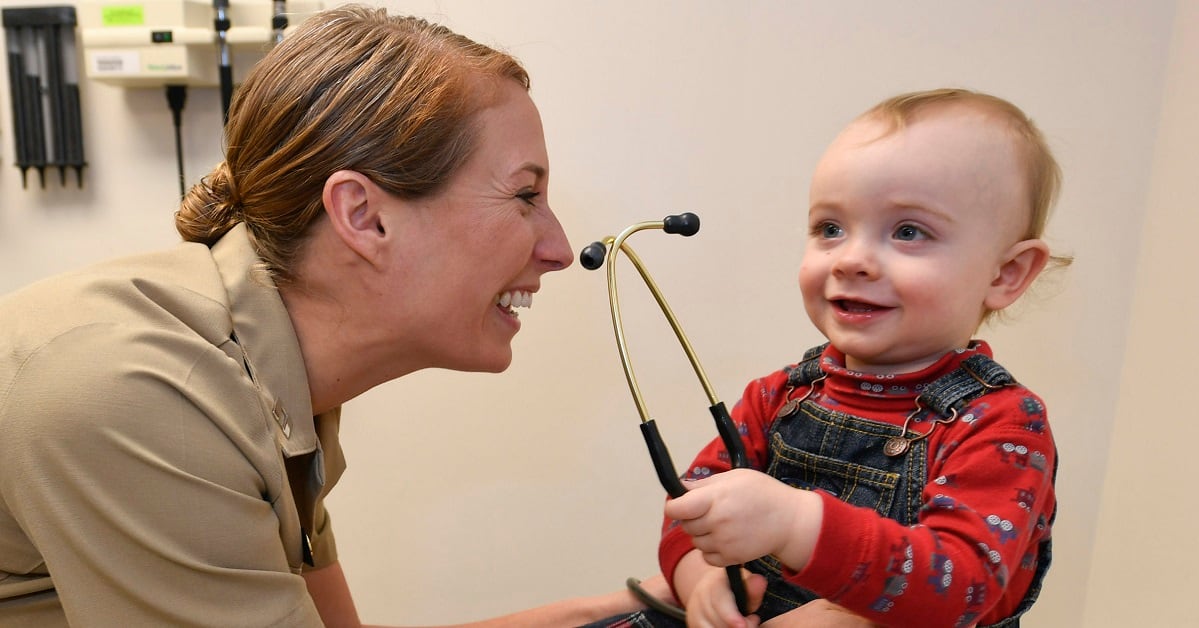Troops would see a 3.0 percent pay raise, more child care options at bases with 24-hour duty shifts, and a new basic needs allowance for low-income military families under a House draft of the annual defense budget policy bill to be released next week.
The measure also calls for a new military domestic violence task force to review and address the scope of that problem within the ranks and would require Pentagon leaders to collect information on the extent of the problem of anti-Semitism and white supremacist activity among the active-duty force.
The proposals — all included in the personnel section of the House Armed Services Committee’s defense authorization bill for fiscal 2021 — are scheduled to be publicly unveiled and voted on by panel members next Tuesday. Military Times obtained an advanced copy of the draft language, which includes several items likely to draw the ire of the White House.
RELATED

The pay raise proposal, however, is not one of them. The House committee plan for a 3.0 percent pay raise next January equals the administration’s suggested raise, the raise included in a Senate Armed Services Committee bill earlier this month, and the mark dictated by federal statute to match projected increases in civilian sector wages.
Altogether, the matching proposals make the 3.0 percent raise for 2021 nearly certain.
It represents the first time in a decade that troops will see consecutive years with salary boosts of at least 3 percent. This past January, military pay increased by 3.1 percent.
For junior enlisted troops, the proposed raise would amount to roughly $860 more a year in pay. For senior enlisted and junior officers, the hike equals about $1,500 more. An O-4 with 12 years service would see more than $2,800 extra next year under the increase.
The basic needs allowance proposal would also boost take-home salaries for thousands of service members, but faces tougher legislative odds. White House officials successfully opposed the same idea in last year’s authorization bill, citing the potential costs.
Under the plan, military families whose total pay is less than 130 percent of the federal poverty guidelines (set at $24,600 for a family of four, for example) would receive monthly stipends of several hundred dollars to help cover food, clothing and other essential costs.
Military family advocates have argued for the assistance in the past, calling it a dire need and noting that one-third of military children attending Department of Defense schools qualified for free or reduced-price lunch in recent years.
Lawmakers also included several new child care provisions designed to help military families. Language in the proposal calls for military leaders to provide child care to any troops or department civilian employees “working on a rotating shift at a military installation.”
RELATED

Military spouses who agree to provide home day care services for other military families would be granted preferential on-base housing under another bill proposal. Lawmakers have also called for several studies related to military family life, including a look into Defense Department school options and “military family readiness” issues.
Pentagon leaders would also be required to establish a new domestic violence task force to collect data on the problem and propose solutions. The topic has been a major focus of the committee’s personnel panel in recent months, with victims lamenting military leadership’s inadequate reaction thus far.
Committee members are reviving language from last year’s defense bill draft (later dropped in inter-chamber negotiations) to poll troops on signs of “racist, anti-Semitic, or supremacist” extremist ideology among active-duty forces amid numerous individual reports of such activity in recent years.
With the ongoing coronavirus pandemic still threatening much of the country, committee members included language in the measure mandating that defense officials “have the diagnostic equipment, testing capabilities, and personal protective equipment necessary to protect members of the Armed Forces from the threat of infectious diseases.”
That work includes refining plans to research and develop vaccines for infectious diseases (something the White House has already tapped military officials to help with) and increasing service leaders’ ability to recall retirees with specialized medical skills to help with the response.
RELATED

Another mandate would require defense leaders to work with the National Academies of Sciences, Engineering and Medicine on a study to determine the incidence of cancers among military pilots, after news reports suggested those service members could face additional medical risks.
House Armed Services Committee Chairman Adam Smith, D-Wash., has already indicated he will include in the authorization bill a billion-dollar pandemic response and preparedness fund to help boost production of key medical equipment sought by states in the fight against the coronavirus pandemic.
And the panel will suggest several new policies related to preventing sexual assault and harassment, including prohibiting the prosecution of minor offenses against victims who report sexual assault and requiring the victims and accused perpetrators at military service academies to be kept separate but still both allowed to continue their studies.
All of the provisions will have to survive debate among the full House Armed Services Committee later this month and negotiations with Senate lawmakers later this summer before becoming law. Details of the committee’s full defense authorization bill plan will be released early next week.
Leo covers Congress, Veterans Affairs and the White House for Military Times. He has covered Washington, D.C. since 2004, focusing on military personnel and veterans policies. His work has earned numerous honors, including a 2009 Polk award, a 2010 National Headliner Award, the IAVA Leadership in Journalism award and the VFW News Media award.
Joe Gould was the senior Pentagon reporter for Defense News, covering the intersection of national security policy, politics and the defense industry. He had previously served as Congress reporter.





